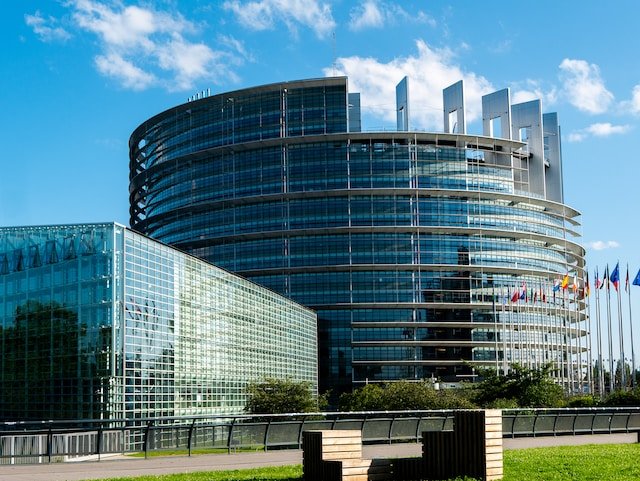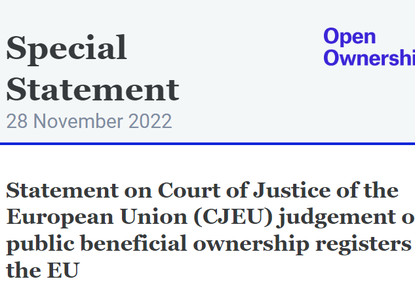European Parliament issues proposals to improve beneficial ownership data access and quality

Photo by Emmanuel Burdin on Unsplash
The European Parliament has announced a range of draft proposals in its Sixth Anti-Money Laundering Directive.
If adopted, these would put in place important measures to ensure that journalists, civil society organisations, and academic researchers are given meaningful access to beneficial ownership data from European Union (EU) Member States. The proposals also hold real potential to improve beneficial ownership data quality and sharing across the EU.
Key proposals set out as part of a wider anti-money laundering package include:
- Granting access to beneficial ownership registers across Europe to journalists, researchers and civil society organisations for two and a half years once they prove to one EU Member State that they have legitimate interest. Legitimate interest should also apply without any discrimination based on nationality, country of residence or of establishment. These measures are hugely important for enabling these actors to easily access beneficial ownership information in practice.
- Reducing beneficial ownership disclosure thresholds for all corporate vehicles with an obligation to disclose, and setting lower thresholds for companies in high-risk industries such as extractives. Evidence shows this is important for curbing corruption risks in these sectors.
- More stringent requirements for authorities in charge of central beneficial ownership registers to ensure their data is accurate, adequate and up-to-date - and imposing sanctions on those who submit false or inadequate information.
In November 2022, the Court of Justice of the European Union invalidated the general public’s right of access to beneficial ownership registers in EU Member States. This means that journalists and civil society organisations wishing to access beneficial ownership registers, and businesses checking data on potential partners or contractors, must now demonstrate legitimate interest in accessing the data for purposes of combating money laundering and financial crime.
The fact that under the new proposals these actors would only need to apply once to demonstrate their legitimate interest, and would then have access to all EU beneficial ownership registers for at least 2.5 years, is a welcome signal that the EU is serious about ensuring these groups can actually access and use data to combat money laundering. The promise of accessibility for actors with legitimate interest based outside the EU is likewise encouraging.
MEP Luděk Niedermayer, Vice-Chair of the Committee on Economic and Monetary Affairs in the European Parliament, said, "Quality of data is an essential factor in countering money laundering. With the new legislation, registers of beneficial ownership will improve, and the usability of other registers, namely those covering real estate, land, boats, planes and vehicles, will be enhanced. Following a ruling by the European Court of Justice, we proposed clear and transparent rules for access to registers for people or entities with a legitimate interest.”
A key task for the current Sixth Anti-Money Laundering Directive has been to adequately define parameters for who has legitimate interest and what access they should be granted. The proposals set a promising level of ambition for granting access to beneficial ownership data for actors demonstrating legitimate interest. Nevertheless, it remains to be seen how the concept of legitimate interest will be practically applied when applications to access BO registers are assessed.
Transparency International and others have welcomed the strong proposed measures and encouraged the Council of the European Union (EU Council) to accept them.
Final decisions on these proposals and their implementation will depend on negotiations during the coming months between the EU Council, the European Commission and the European Parliament.
Related articles and publications
Publication type
News article
Blog post
Sections
Implementation
Open Ownership Principles
Access,
Verification

